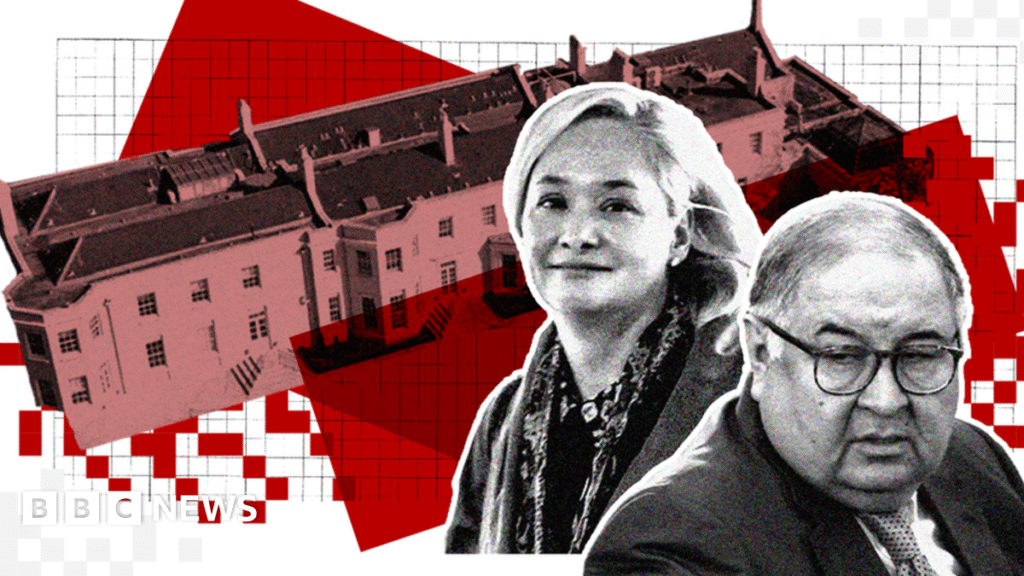The UK government has long promised to crack down on “corrupt elites” from overseas, including “Russian oligarchs and kleptocrats”, using UK property to launder illegal wealth.
Ministers insisted, external they would crack down on foreign criminals using UK property to launder money by ensuring they “can’t hide behind secretive chains of shell companies”.
As a result, under a law passed in February 2022 in response to Russia’s invasion of Ukraine, ministers said anonymous foreign companies seeking to buy UK land or property would be required to reveal full details of the individuals who ultimately owned them. Overseas organisations that already owned land in the UK were given a six-month period to do the same.
Now that six-month grace period is up – all the people, whatever their reputations, behind companies that own thousands of British properties should have been uncovered for the first time.
The BBC and Transparency International matched thousands of filings from the new register with Land Registry records. This analysis suggests that some 18,000 offshore companies – which between them hold more than 50,000 properties in England and Wales – either ignored the law altogether or filed information in such a way that it remains impossible for the public to find out who the individuals are who ultimately own and benefit from them.
“While the register is starting to serve its intended purpose, our analysis reveals there are far too many companies that could be trying to skirt the rules, not knowing they exist, or ignoring them altogether,” says Duncan Hames, Director of Policy at Transparency International UK.
To understand how the law is and isn’t working, it helps to look at three very expensive properties. The first is a pair of luxury apartments. Another is a sprawling £48m estate in north London, the third a £10m country mansion.
All have been linked in some way to figures connected with Vladimir Putin’s regime.
For instance, look at the two luxury flats in central London worth an estimated £11m.

